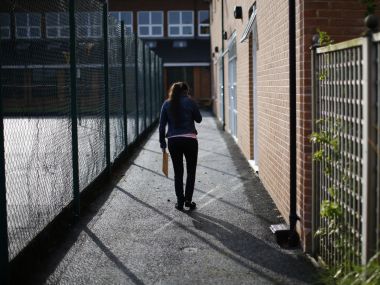Is Britain getting its first LGBT school?

Britain's first specialist state school for lesbian, gay, bisexual and transgender young people could open in central Manchester within the next three years, according to major news sources.
This comes after LGBT Youth North West, a charity seeking to support LGBT young people in the North West of England, received £63,000 funding from Manchester City Council. The concept of an alternative education provision for LGBT students was featured on the funding application, after young people had expressed a desire for it, but the idea is still very much in consultation stages, Sally Carr, founder and operational director of LGBT Youth NW, told Christian Today.
"We've been working with LGBT youth for ten years, and many young people over many years have told us the same story," said Carr.
"We worked with over 10,000 students last year across a variety of schools to try and address homophobia, biphobia and transphobia. But we know that these students face prejudice every day."
The concept of Britain's first 'gay school' has already caused controversy, but the charity maintains more needs to be done to help LGBT students who are struggling and unsupported in mainstream schools.
Speaking to The Guardian, Amelia Lee, strategic director for LGBT Youth NW, said: "Despite the laws that claim to protect gay people from homophobic bullying, the truth is that in schools especially, bullying is still incredibly common and causes young people to feel isolated and alienated, which often leads to truanting and, in the worst-case scenarios, to suicide."
Christian teenager Lizzie Lowe hanged herself in Manchester last year because she feared telling her parents that she was gay. She was only 14. It is tragic deaths like Lizzie's that LGBT Youth NW is hoping to prevent, through their current work training thousands of pupils and teachers in mainstream schools, and potentially through a specialist school in the future.
Rev Sally Hitchiner, founder of Diverse Church, a support network for LGBT people which has a confidential Facebook group enabling young LGBT Christians to connect, feels that an exclusive school might help those struggling in mainstream education.
"I think it's a tragedy that it's needed," she said, "but for students involved it might be a lifeline. Far too many LGBT students face misunderstanding and isolation to the point that some of take their own lives.
"However, I think the highest priority has to be enabling every school in the country to be a supportive and safe place for all of its people."
Tory MP and former education minister Tim Loughton has spoken out against the idea of an exclusive school, saying, "I cannot see how segregating a group of young people identified by their sexuality can aid better engagement and understanding.
"The way to achieve more integration, understanding and empathy is not by segregating members of one group, and this would seem to me to be a step backwards from achieving tolerance."
Yet, it seems that the attacks may be aimed at an idea that doesn't exist. Carr says that their education provision wouldn't be an exclusive school for LGBT students.
"People have failed to recognise the bigger picture," she said. "The original suggestion is not about an exclusive school for LGBT students, but about an inclusive school for all students.
"Much like you would expect Christian schools to be absent of prejudice towards Christianity, this would be a school free from homophobia, transphobia and biphobia. These things have no place in modern British society."
The fact that LGBT students are often bullied and isolated in UK schools is something that needs to be addressed, and Sally Hitchiner believes that Christians can be part of the solution.
"I think Christians, particularly straight Christians, need to listen more than we speak," she said. "There's a need to listen to young LGBT people, and if they say that the current system is not working we need to take that seriously. We need to change the system so that future LGBT people are able to live and find God and find that God loves them, both at work and at play and at church.
"That has to be our highest priority, keeping young people from giving up on life and giving up on God."











